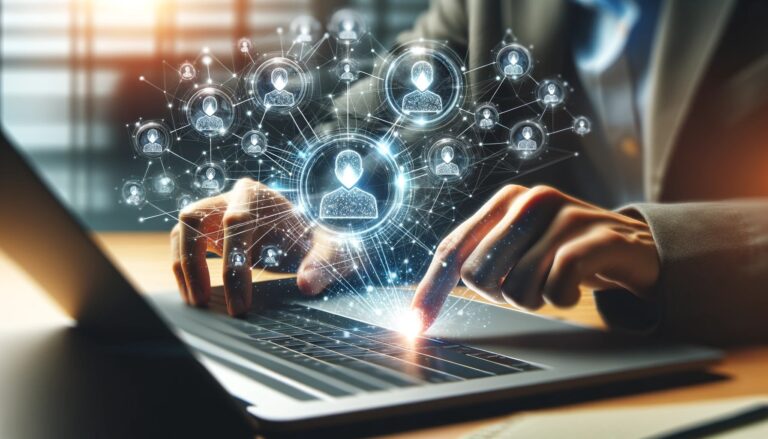Have you ever struggled with time management? As a college student, you need to know how to balance your college life with the rest of your life. Fortunately, time management for college students doesn’t have to be hard.
Table of Contents
ToggleIs Time Management A Problem For College Students?
Time management can be a problem for many college students. Whether you get tutoring or not, you might find it hard to complete all of your tasks.
However, one study found that students who perceived greater control of their time tended to get higher grades. Time management behaviors were fairly similar for all of the participants in the study, regardless of age, gender, and other factors.
Time Management Tips and Strategies 2024
Managing your time in college isn’t easy, but some time management tips can help. Then, you can enjoy life as a college student and keep your grades up.
Goal setting and planning
Before you can improve your time management, you need to set goals. Consider what you need to do this week, month, and semester. Create a list of every task you need to complete in a certain time.
Then, you can set objectives for the entire week or month. Use the SMART goal system to choose a long-term goal that is specific, measurable, attainable, relevant, and time-based. The system can help you set goals and plan so that you can meet those goals.
Scheduling and prioritizing
Once you have goals in mind, you can start to manage your time. Figure out which assignment you need to complete first and what tasks can wait. Make a plan for what you’ll work on in your study sessions.
Stick to that plan as best as you can, and adapt as necessary. If a new assignment comes up, you can shift your schedule to accommodate it. Then, you won’t miss an important deadline, and you can complete all of your assignments on time.

Getting organized and sticking to a routine
As you figure out what to focus on each week, you can master your organizational skills. But to really help you, create a routine that you can follow throughout the semester. Consider when you have class and when you have long breaks where you can study.
Write out a schedule that includes all of your classes and extracurricular activities. Make sure you have time to read each day. After a few days or weeks, the study schedule will feel natural to you, and you won’t have to force yourself to follow the routine.
Using technology wisely
Technology can be both a tool and a hindrance to your academic success. When you need to get stuff done, put your phone on silent or turn it off. Then, you won’t have to worry about people distracting you with messages.
On the other hand, you can use different devices to help get work done. Make sure you have a word processor on your laptop so that you can write papers. And if you ever want to leave your laptop at home, consider storing documents on the cloud so that you can access them on a tablet or another computer.
Being healthy
When you’re in college, it can be easy to focus on your work. However, you also need to focus on yourself and your health. Make sure you schedule time for meals and snacks so that you don’t go hungry. If you do have a long day, pack snacks that you can eat while you work on schoolwork.
And set a regular bedtime that you can follow to help get enough sleep. That way, you’ll have plenty of energy to get through classes and other activities throughout the day. You’ll then be able to focus in class, which can lead to better grades.
Studying intelligently
It’s one thing to study when you’re in college. But if you don’t know how to do it well, it won’t matter how long you spend on your assignments. If you want to get your best work done, you should consider how to learn efficiently.
You should only work on one task at a time. Put away anything that could distract you, such as your phone. If you try to multitask, you could actually be less productive as you learn.
Break your studying into manageable chunks, and work on one thing at a time. Then, reward yourself with a short break before you get back to studying.
To-do list making

You know you need to complete assignments, but you aren’t sure what tasks you should do. Juggling a lot of classes can be much easier with a to-do list. For one, you won’t have to waste precious time figuring out what to work on.
Second, you can make sure you don’t miss an important deadline. List the tasks by the due date, and try to focus on a few tasks each day. If you struggle with procrastination, having a list of tasks to complete may really help.
Setting a timer for two minutes if you’re feeling unmotivated
Simon Sinek once said, “the hardest part is starting.” One of the best time management techniques is to simply start. Give yourself two minutes to start so that you can get some work done.
When the timer goes off, you can stop studying if you’re really that tired or preoccupied. But odds are, you will be able to keep going. Starting really can be the hardest part of any study session, and giving yourself a couple of minutes to start may be enough to get over the hump of not wanting to do anything.
Tracking time to use it more efficiently
Imagine you spend all day studying but can’t seem to remember what you learned. Even if you have the perfect schedule for when and what to do, time can go by fast. To make the most of your time, use a time tracker.
This is especially important if you’re an adult learner with other obligations. But all university students can benefit from tracking their time. You can figure out how much time you spend on assignments but also how much time you spend procrastinating. That way, you can stop wasting so much time.
A time-tracking app can help you to make the most of your time. It allows you to stay focused and conscious of your time. It keeps you reminded of your tasks, helps you stay up to speed, and is maximally productive.
Learn and practice specific reading strategies
A lot of your assignments and classes will involve some amount of reading. Learning how to read efficiently can save you a lot of time. Use a few reading strategies to help learn the material, and use the best strategy for the specific assignment.
For example, you may want to start by reading the headers. Then, you’ll take notes as you read the body text under each header. Another strategy you might use is skimming the text to look for important pieces of information. Whatever strategy you select, make sure you won’t compromise your learning.
Put up reminders
Have you ever thought to yourself that you could remember everything you need to do in a day? While it’s possible, you don’t want to stress about forgetting something important. To help remember what to do, use sticky notes.
Write down small reminders about assignments as well as other things, like financial aid application deadlines. Place them around your room and near your desk. Use bright colors to make the notes stand out and easier to see. Then, you’ll know what you need to work on each day.
Make checklists
Whenever you have a larger task, break it down into smaller chunks. Writing an outline for a paper sounds a lot easier than writing an entire paper. The more you can break up your big assignments, the less stressful they will seem.
Plus, you can check off each step when you complete it. Include details with each step to reduce any lack of clarity so that you know exactly what to do. And if you have similar assignments later, you can replicate the checklist to further save time.
Reward yourself
Imagine you’ve completed all of your assignments for the week or for learning a new skill or concept. You’re early, and you aren’t sure how to spend the rest of your time. Take yourself out to dinner, or buy something you’ve been eyeing for a while.
Figure out another way to reward yourself for your efforts. If you have a bigger project, give yourself small rewards when you complete certain steps. Maybe you go get a coffee after completing the first draft, and you splurge on a full meal after you turn the project in.
Set deadlines for yourself

Whether you have a big project, or your professor is flexible with their deadline, don’t let that trip you up. To make sure you stay on track, give yourself interim deadlines. Use the management tip to break your assignment into smaller assignments.
Give each of those tasks a deadline so that you don’t wait until the last minute to do everything. Not only will you have to rush the big assignment, but you might also get smaller assignments to do for your other classes at the same time.
Catch yourself when you are involved in unproductive activities
Like it or not, you can only be so productive for so long. When it comes to full-time workers, the average person is only productive for three hours a day. This likely also applies to full-time college students.
If you find yourself getting distracted by the internet, a roommate, or something else, take note of that. Get rid of whatever is distracting you so that you can focus on your work. In the future, try to avoid replicating the activity that inhibits your productivity.
Block your courses
Can you spread your courses throughout the day? Sure. But should you? That may not be the best idea.
If possible, schedule your classes back to back. Then, you can get in the right mindset to learn, and you don’t have to waste time walking to and from your classes throughout the day.
You’ll also be able to use the rest of your day to study or maintain a social life. While you may not have a ton of choice in when you take classes, group them together as best as you can for better time management.
Determine whether you’re an owl or a rooster
Being alert for your classes or a study session can make a world of difference. If you’re struggling to stay awake, you may not be as productive. So consider when you’re most active and alert throughout the day.
If you’re an early bird, don’t be afraid to wake up early and study before classes. On the other hand, a night owl may prefer to stay up late. If you aren’t sure of your chronotype, watch yourself for a week to figure out specific times when you should do your work.
Don’t take 10-day holidays
Taking a holiday can be the best feeling, especially for adult students who also have jobs and families. But regardless of your current schedule, you should keep from taking too much time off.
The longer you take off from school, the harder it can be to get back into your routine. So keep your holidays short. You’ll still have plenty of time to relax and lower your stress level, but getting back into your weekly schedule won’t take as long.
Unfollow everyone on social media except people you really care about
Worldwide, the average person spends over two hours on social media each day. If you follow hundreds of people, it can be easy for that time to increase. One of the best ways to manage your time is to unfollow people.
Stop following celebrities, influencers, and people you don’t know very well. That way, you can see all of the updates from your friends and family. You won’t have to waste time scrolling past a bunch of other people.
Keep a clock placed visibly before you
Working against the clock is another time management tip to try. While you can choose goals based on the work you want to do, time-based goals are also useful. Having a clock within view can help you stay on track as you work on your assignments.
You don’t have to worry about spending hours preparing for a test. And you can make sure that you switch tasks after a certain amount of time. Plus, you can make sure you don’t forget to eat and go to bed at a reasonable time.
Avoid perfectionism and fussing over unimportant details
Did you know that the origin of the word “perfect” means something quite different from what a lot of people think? The word comes from the prefix “per” and the Latin word “facere.” “Per” means completely, while “facere” means do.”
Using that logic, “perfect” simply means to do something completely. So stop wasting time on the small details of each paper or project. While you want to improve your academic performance, perfectionism can be a great excuse for procrastination, and that doesn’t help you.
Use your downtime well

After you spend all day studying or in class, give yourself a break. Even if you only have a few minutes of downtime before you have to fall asleep, take advantage of that time.
Watch your favorite show or talk to a friend or family member. Give yourself time to decompress and relax before the next day. If you know you have a lot of stuff to do tomorrow, write them all down now so that you can wake up and get straight to work.
Set up your virtual office
Imagine trying to get on a Zoom call for an online class in the middle of your family’s living room, or having to do your assignments at a loud cafe. Whether you use online learning resources or not, you need a good place to study and prepare for class.
If possible, choose somewhere quiet where no one can bother you. Stock your office area with pens, pencils, and paper. Make sure you have an outlet to charge your computer. And get some snacks to keep on hand for a quick energy boost.
Block out distractions
One of the easiest ways to compromise your plan is through distractions. You can face distractions from family, friends, email, and other websites. When you need to buckle down and complete assignments, get rid of as many distractions as possible.
Shut the door to your room, and leave a note on it to tell people you’re studying. Turn your phone off or at least turn the sound off so that you can’t hear notifications. Closeout your email tab on your computer. Then, you’ll be able to focus and get more done.
Time management tips for college students with ADHD 2024
While some of the best time management tips can work for all students, they might not fit your needs. If you have ADHD, you should consider time management strategies that work for you.
Watch the time
ADHD can make it easy to waste your time on smaller tasks other than your assignments. When working on your assignments or other things around the house, keep an eye on the clock. You don’t have to look at it all of the time, but make sure you know roughly how late it is.
Then, you can know when you need to stop cleaning so that you can study or complete your homework for the next day.
Allow extra time
Your fellow students without ADHD may be able to study for an hour. But you might need to take two hours to learn the same material. Figure out how long it takes you to get your work done and give yourself plenty of time.
The more time you give yourself, the less likely you’ll miss deadlines. While you don’t want to procrastinate during your study sessions, having time to gain and lose focus can keep you on track overall.
Use a planner
You might have a lot of stuff to do, whether for school or not. When you have ADHD, you may not have the best short-term memory. Imagine getting a huge assignment at the end of class and not remembering it when you have time to complete the work.
If you carry a planner with you, you can write down all of your assignments and tasks. Then, you won’t forget anything when you’re ready to study. Then, you may be able to get better grades simply by completing everything on time.
Choose the right time
Studying at peak times is important for everyone, but it’s especially vital if you have ADHD. The last thing you want is to be falling asleep when you try to do your homework. As you go throughout your day, notice when you feel more or less alert.
Use that information to create a study schedule that works well for you. Of course, you may still need to give more time than your peers. But by studying when you’re naturally alert, you won’t have to waste time or rely on caffeine or other stimulants to keep you awake.
Include weekends in your schedule
The weekend can be an excellent time to relax and be with your loved ones. But it can also be useful to help you get enough studying done each week. If you haven’t finished all of your work by Friday night, don’t be afraid to spend extra time on Saturday and Sunday.
You can have the entire day to study and get your assignments done. Classes, work, and other errands don’t have to distract you. If you live with others, let them know that you plan to focus on school on the weekends so that they don’t distract you.
Time Management and Study Habits according to Reddit:
Organization: make a calendar for assignments and for studying. This will you keep track of your assignments and make sure that you turn them in on time.
You might be interested to check those related posts as well:
- 35+ Best Time Management Quotes And Sayings [To Boost Productivity] in 2024
- 30+ Best Time Management Hacks 2024 [Methods and Strategies]
- How to Make Money as a College Student [and Avoid Being Broke] in 2024
Conclusion
Time management skills are crucial for academic success for college students of all ages and degree programs. Fortunately, you can try multiple strategies to see what works for you. That way, you’ll be able to get the grades you want.




